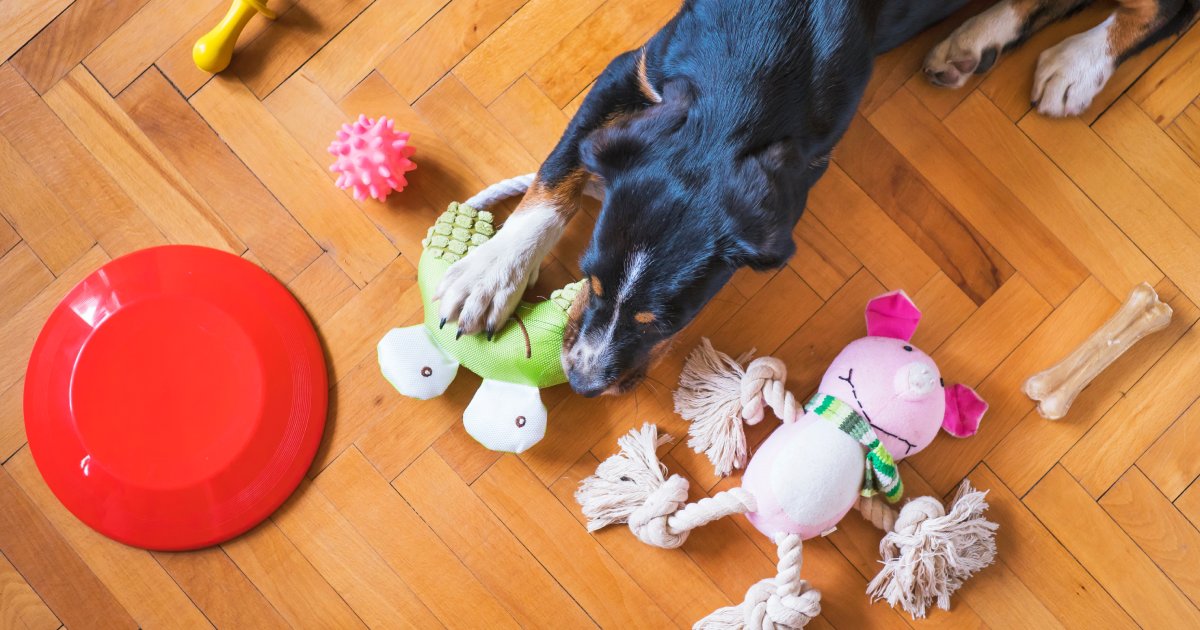Pet Suppliers are Hungry for Licensed Goods

Suppliers gathered at the Global Pet Expo late last month had a big appetite for consumables. Hard goods, however, are being affected by tighter consumer spending.
That’s not to say there weren’t licensing deals. Fetch for Pets had agreements with Crayola, Fisher Price, Orvis, Honeywell, and Dole, but many product introductions were more about pet health, wellness, and nutrition than playtime.
For example, pet beds were in abundance at the show. Standard Fiber launched licensed Tempur-Pedic pet beds with recycled materials and cooling fibers as well as Tempur-Pedic, Stearns & Foster, and Sealy branded furniture protectors. Ralph Lauren and Nicole Miller models have been launched by Town & Country Living. And Bowsers Pet Products highlighted a pet canopy bed with a $339 pricetag.
“Non-consumables are what is struggling right now, including bowls, crates, collars, leads, and clothing,” said Steven Shweky, President of Fetch for Pets. “Once you move into consumable products the business is a lot stronger because there is definitely an increase in pet population and consumers have no choice but to take care of them.”
And non-discretionary consumables and health care categories represented 82% of Chewy’s fourth-quarter sales, according to Chewy CEO Sumit Singh.
As a result, there was a heavy emphasis on pet food at the show.
And many of these offerings reflected the health-conscious food trends that are popular with pet owners. Animal Essentials fielded Mushroom Defense liquid supplements that are made from three different varieties of mushrooms, for example, and Pets Best Life’s Yummy Combs bowed flossing treats made from 38 natural and grain-free ingredients.
At the same time, Pet retailers are expanding their merchandise mix. Petco Health and Wellness Co.—which has 1,409 U.S. stores—added formerly independent, retailer-only Backcountry (t-shirts, coats, floatation vests) and Stella & Chewy (natural pet food) brands. It is also building out its private label brands WholeHearted and Reddy (premium food and other products, which operates a separate standalone store in New York).
“These brands continue to meet the core humanization trend, while also catering to a variety of wallet sizes,” Petco CEO Ron Coughlin said. “The assortment is driving retention with health-focused customers by offering products unavailable in mass and many other online channels and reducing our competitive promotional exposure.”
And while sales for hard goods may be slowing, the Global Pet Expo still saw plenty of interesting apparel offerings. For example, K9 Wear showed off a combo Tommy Bahama dog shirt and collar ($99), as well as a Natori Co.’s licensed outfit paired with leopard-patterned dog harness.
Looking forward, many suppliers are banking on an increase in sales of smart home products, which have gradually expanded during the past several years. Now that consumers are more comfortable integrating these types of technologies into their homes, it stands to reason they would want their pets to benefit from the same conveniences.
Fetch for Pets’ license with Honeywell brings the brand into this category for the first time. And Pawii demonstrated a co-branded Waterdrop Caremi mobile smart pet water fountain that features a filtration system to protect pets as well as an app that monitors the amount of water a pet drinks. Waterdrop is entering the pet business for the first time, having previously developed under-the-sink and countertop filtration systems.
“The smart home business [has] been there for the past seven years, but it is just now becoming more mainstream and a little more affordable,” Shweky said.




